Antioxidants are molecules that can aid in the protection of cells against free radical damage. Free radicals are unstable molecules that can damage cells and accelerate aging. Role of Antioxidants can neutralise free radicals by donating an electron to them, allowing them to be stabilised.
Common Role of Antioxidants in Organic Skincare and Haircare Product
Vitamin C
Vitamin C is a well-known antioxidant that can be included in organic skincare and haircare products. Vitamin C can be added to serums, moisturisers, cleansers, shampoos, and conditioners, among other organic skincare and haircare products. It is critical to select a stable and effective vitamin C form, such as L-ascorbic acid or magnesium ascorbyl phosphate. Vitamin C is a soluble vitamin in water.
The benefits of vitamin C for the skin and hair:
Reduces the appearance of dark spots: Free radicals are unstable molecules that can damage cells and cause premature aging and other problems. Vitamin C has the ability to neutralise free radicals and protect cells from damage. Vitamin C can help to reduce the appearance of sun damage, hyperpigmentation, and acne-related dark spots.
Encourages collagen production: Collagen is a protein that provides structure and elasticity to the skin. Vitamin C can aid in the production of collagen and the elasticity of the skin.
Improves hydration: Vitamin C can aid in the retention of moisture in the skin, resulting in a more hydrated and plump appearance.
Brightens skin tone: Vitamin C helps to even out skin tone and reduce the appearance of redness and dullness. Vitamin C is also good for hair. It can aid in the strengthening of hair follicles, the promotion of hair growth, and the reduction of breakage.
Vitamin E
Another common antioxidant found in organic skincare and haircare products is vitamin E. It is critical to select vitamin E products that are both stable and effective. Because vitamin E is an oil-soluble vitamin, it dissolves in oil. Look for a stable form of vitamin E, such as tocopherol or tocotrienol, to ensure that the vitamin E in your skincare and haircare products is effective.
The benefits of vitamin E for the skin and hair:
- It guards against free radical damage.
- Reduces the visibility of fine lines and wrinkles
- Encourages hydration
- Soothes irritated skin: Vitamin E can help to soothe and reduce inflammation in irritated skin. This can be beneficial for people suffering from eczema, psoriasis, and rosacea.
- Vitamin E can help to protect hair from damage caused by heat styling, UV radiation, and environmental pollutants.
Green Tea
Many people who are new to tea are surprised to learn that green tea and black tea come from the same plant species, Camellia sinensis.
Green tea becomes “green” and black tea becomes “black” due to the variety of tea plants used and how the tea leaves are processed.
Green tea is an antioxidant that can be found in organic skincare and haircare products. It contains a lot of flavonoids, which are antioxidants that can help protect your skin and hair from free radical damage. Caffeine, which is found in green tea, can help to stimulate blood flow to the scalp and promote hair growth.
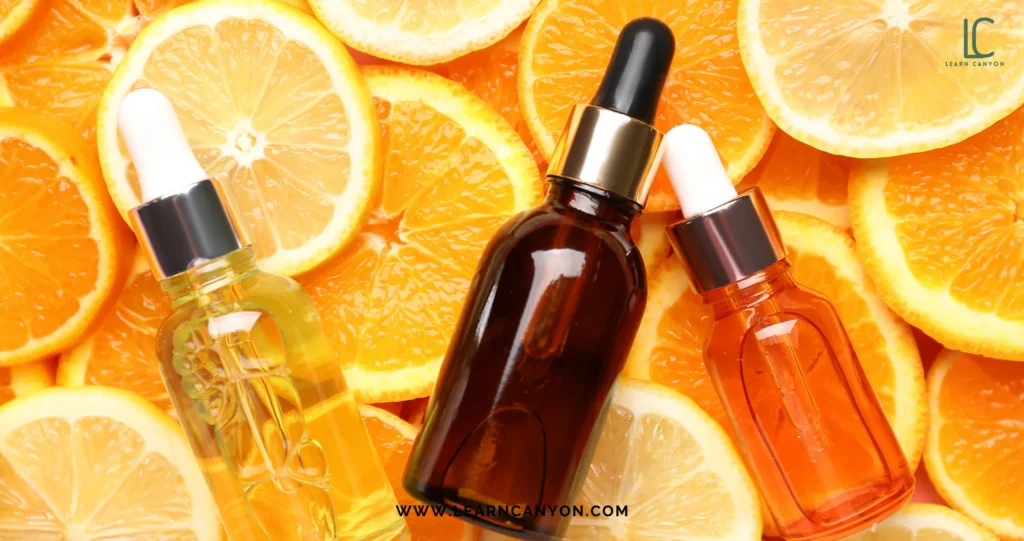
Coenzyme Q10
- Coenzyme Q10 (CoQ10) is an antioxidant that occurs naturally in all cells of the body. It is required for energy production as well as cell function. CoQenzyme10 levels can decrease with age and due to certain medical conditions.
- Coenzyme10 is becoming more popular as an organic skincare and haircare ingredient. It is critical to select Coenzyme10 that is both stable and effective. Because Coenzyme10 is an oil-soluble ingredient, it is best to look for products that contain a dissolved form of Coenzyme10, such as ubiquinone.
- CoQ10 is generally considered safe for most people to use.
- Because coenzyme10 may interact with other ingredients, it is critical to test its compatibility.
Resveratrol
Resveratrol is a polyphenol that can be found in red wine, grapes, berries, and a variety of other plants. It is a potent antioxidant that has been linked to a variety of health benefits. Because resveratrol is an oil-soluble ingredient, it is best to include products that contain resveratrol that is dissolved in oil, such as trans-resveratrol.
Resveratrol is also finding favour as an ingredient in organic skincare and haircare products. It is thought to have a number of skin and hair benefits, including:
- Protection against free radical damage
- Reduced inflammation
- Improved hydration
- Reduced appearance of fine lines and wrinkles
- Resveratrol can help to stimulate hair growth by improving blood flow to the scalp and nourishing hair follicles.
- Resveratrol is generally safe for most people to use,
Overall, resveratrol is a promising organic skincare and haircare ingredient. It has been shown to have a variety of skin and hair benefits, including protection against free radical damage, reduced inflammation, improved hydration, reduced the appearance of fine lines and wrinkles, and promoted hair growth. More research is needed, however, to fully understand the long-term effects of resveratrol use on the skin and hair.
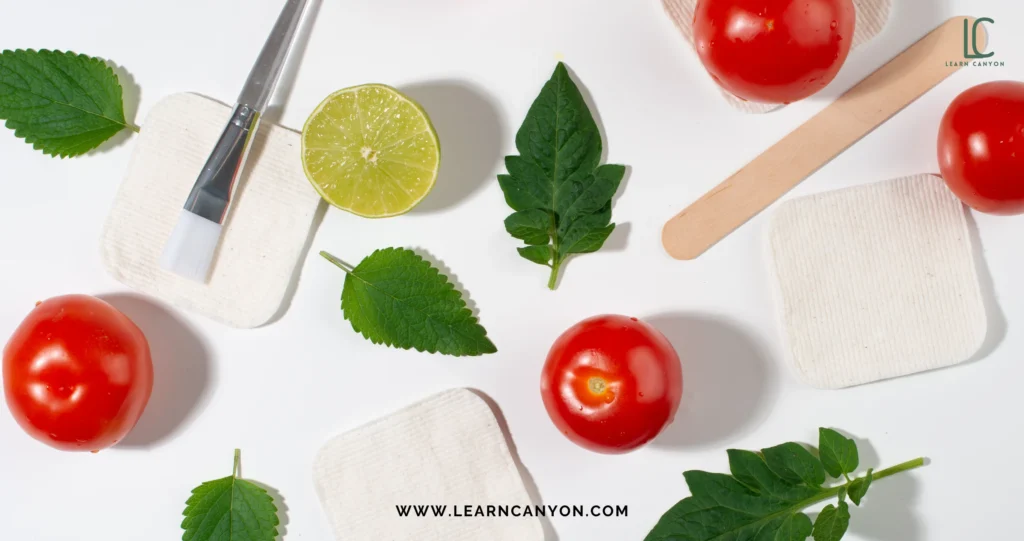
Choosing the Right Antioxidant Products
Understanding product labels
When selecting antioxidant products, it is critical to read the product labels. This will assist you in selecting products that are appropriate for your skin and hair type, as well as those that contain effective and stable antioxidants.
On product labels, check the following:
- The ingredient list will tell you what antioxidants are present in the product.
- Antioxidant concentration: The antioxidant concentration in the product is such that it should be effective.
- Antioxidant form: Some antioxidants are more stable and effective than others.
- Other beneficial ingredients: In addition to antioxidants, the product contains other beneficial ingredients.
- Select products that are suitable for your skin and hair type. If you have sensitive skin, look for fragrance-free and non-comedogenic products. If you have dry hair, look for moisturising and hydrating products.
- Look for products from well-known brands.
- Before purchasing a product, read online reviews.
How to know your skin and hair type
Knowing your skin and hair type is important when choosing antioxidant products. Different skin and hair types have different requiremments, and some antioxidant products may be more beneficial for certain types than others.
The different skin types and their requirements:
Normal skin is well-balanced and neither too oily nor too dry. People with normal skin can safely use a wide range of antioxidant products.
Dry skin is deficient in both oil and moisture. Dry skin should use antioxidant products that are also moisturising and hydrating.
Oily skin: Oily skin produces an excessive amount of oil. People with oily skin should use oil-free, non-comedogenic antioxidant products.
Combination skin is oily in some areas and dry in others. People with combination skin should use antioxidant products that are oil-free and non-comedogenic on their oily areas and moisturising and hydrating on their dry areas.
Sensitive skin: Certain ingredients can irritate sensitive skin. People with sensitive skin should use fragrance-free, hypoallergenic antioxidant products.
The different hair types and their requirements:
Straight hair is frequently fine and can be easily weighed down by products. Straight-haired people should use antioxidant products that are lightweight and non-greasy.
Wavy hair is a cross between straight and curly hair. Wavy-haired people can use a variety of antioxidant products, but they should avoid products that are either too heavy or too light.
Curly hair is frequently dry and frizzy. Curly haired people should use antioxidant products that are moisturising and hydrating.
Coily hair: The most tightly curled type of hair is coily hair. Coily haired people should use antioxidant products that are extremely moisturising and hydrating.
Considering your specific needs
Various antioxidant products can address a variety of skin and hair issues.
Anti-aging: If you are concerned about the signs of ageing, such as fine lines, wrinkles, and age spots, you should consider using antioxidants that are specifically designed to address these issues. Vitamin C and resveratrol, for example, have been shown to improve skin elasticity and reduce the appearance of fine lines and wrinkles.
Hyperpigmentation: If you have hyperpigmentation, such as dark spots or melasma, you should use an antioxidant to help lighten the skin tone. Some antioxidants, such as vitamin C and niacinamide, have been shown to reduce hyperpigmentation’s appearance.
Anti acne: Antioxidants that can help reduce inflammation and redness, such as green tea and Coenzyme Q10, have been shown to have anti-inflammatory properties and can be used to treat acne.
Dehydrated skin: Moisturising and hydrating antioxidants, such as vitamin E and hyaluronic acid, have been shown to improve skin hydration in dry skin.
Greasy skin: For oily skin, choose oil-free and non-comedogenic antioxidants such as niacinamide and ferulic acid, which have been shown to balance oil production and reduce the appearance of pores.
Delicate skin: Choose antioxidants that are fragrance-free and hypoallergenic for sensitive skin. Green tea and Coenzyme Q10 are two antioxidant products that are generally thought to be safe for sensitive skin.
Consulting a dermatologist
Consult a dermatologist before choosing the right antioxidant products for your specific needs. A dermatologist can evaluate your skin and hair type and assist you in identifying any specific concerns you may have. They can recommend antioxidant products that are appropriate for you once they have a thorough understanding of your needs.
The following are some of the advantages of consulting a dermatologist when selecting antioxidant products:
Costomised recommendations: A dermatologist can make recommendations for antioxidant products based on your specific skin and hair type and concerns. Dermatologists have in-depth knowledge of the most recent skincare and haircare products, including antioxidants. They can assist you in comprehending the various types of antioxidant products available and how they function.
Safety: Dermatologists can assist you in selecting antioxidant products that are appropriate for your skin and hair type. They can also assist you in avoiding products that contain ingredients to which you are allergic or that irritate your skin or hair.

Conclusion
Antioxidants are substances that can prevent free radical damage. Free radicals are unstable molecules that are constantly produced on the skin and contribute to disease and premature ageing. Antioxidants can neutralise free radicals by donating an electron to them, thereby stabilising them. The inclusion of small amounts of natural antioxidants in skin and hair care products protects both the product and the consumer.
Encouragement to integrate antioxidants in skincare and haircare routine
Including antioxidant-rich products in your skincare and haircare routine is an excellent way to improve the overall health and appearance of your skin and hair. Here are some of the advantages of incorporating antioxidants into your skincare and haircare routine:
- Antioxidants have the ability to neutralise free radicals and protect cells from damage.
- Many skin and hair problems are caused by inflammation. Antioxidants have anti-inflammatory properties, which can aid in the reduction of redness, swelling, and irritation.
- Antioxidants can aid in the retention of moisture in the skin and hair, resulting in a more hydrated and plump appearance.
- Antioxidants can aid in the improvement of skin elasticity and the appearance of fine lines and wrinkles.
- Antioxidants can aid in the lightening of skin tone and the reduction of the appearance of dark spots.
Antioxidants can be found in serums, moisturisers, cleansers, shampoos, and conditioners, among other skincare and haircare products. Consider incorporating antioxidants into your skincare and haircare routines if you want to improve the appearance of your skin and hair.
Here are some pointers on how to incorporate antioxidants into your skincare and haircare routine:
- Apply antioxidant-containing products on a regular basis.
- Select products that are suitable for your skin and hair type.




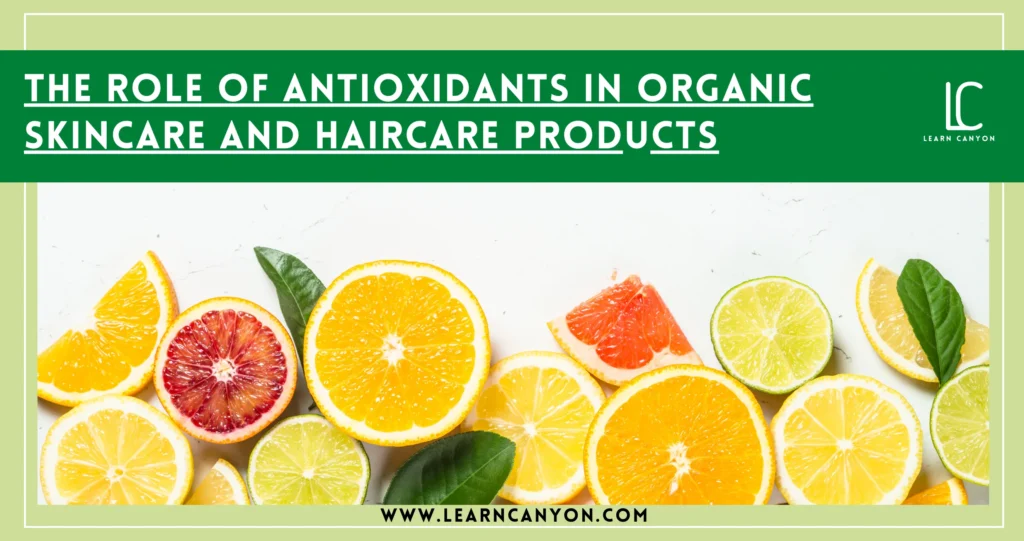

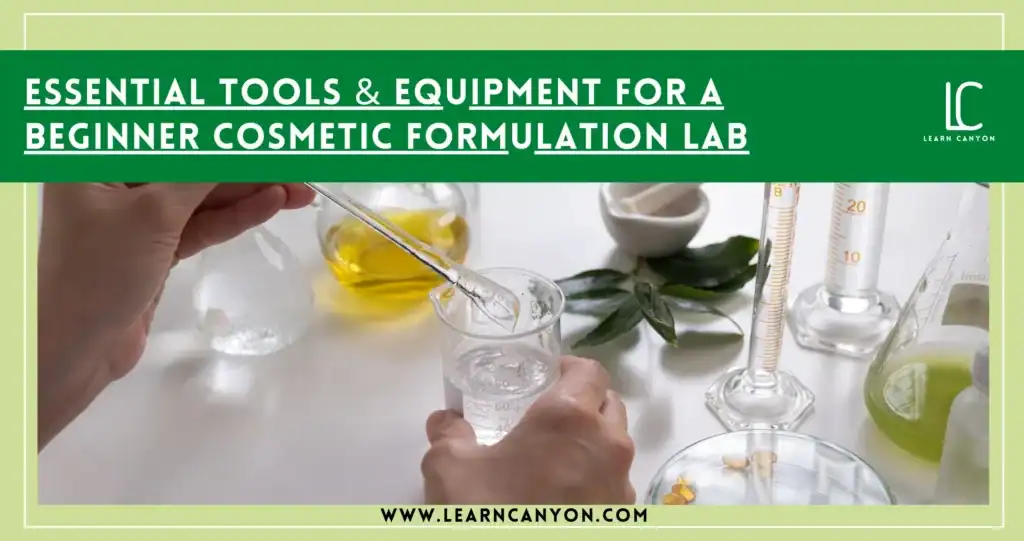

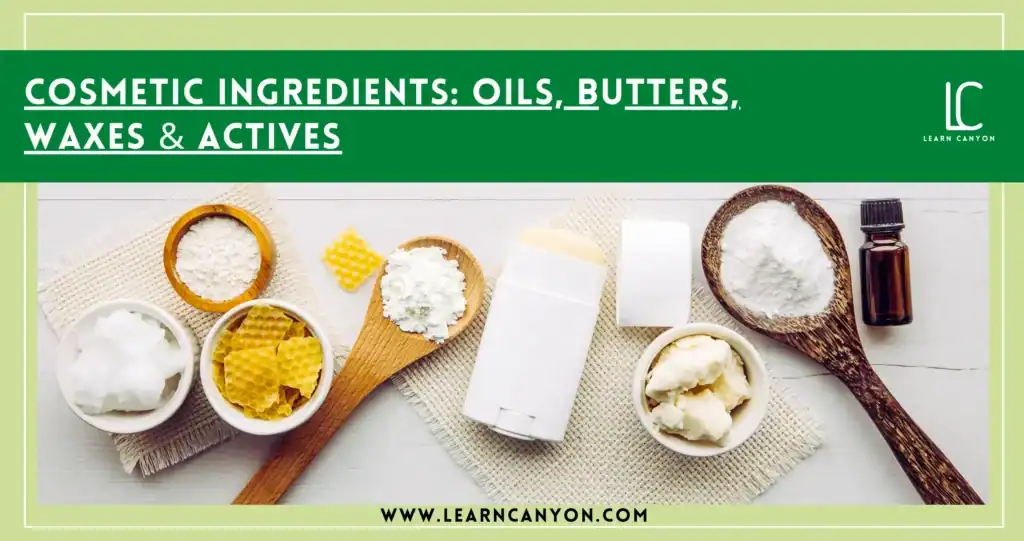



1 thought on “Role of Antioxidants in Organic Skincare and Haircare”
Thank you to let me know understand how to navigate and search for the good antioxidant regarding my skin type.